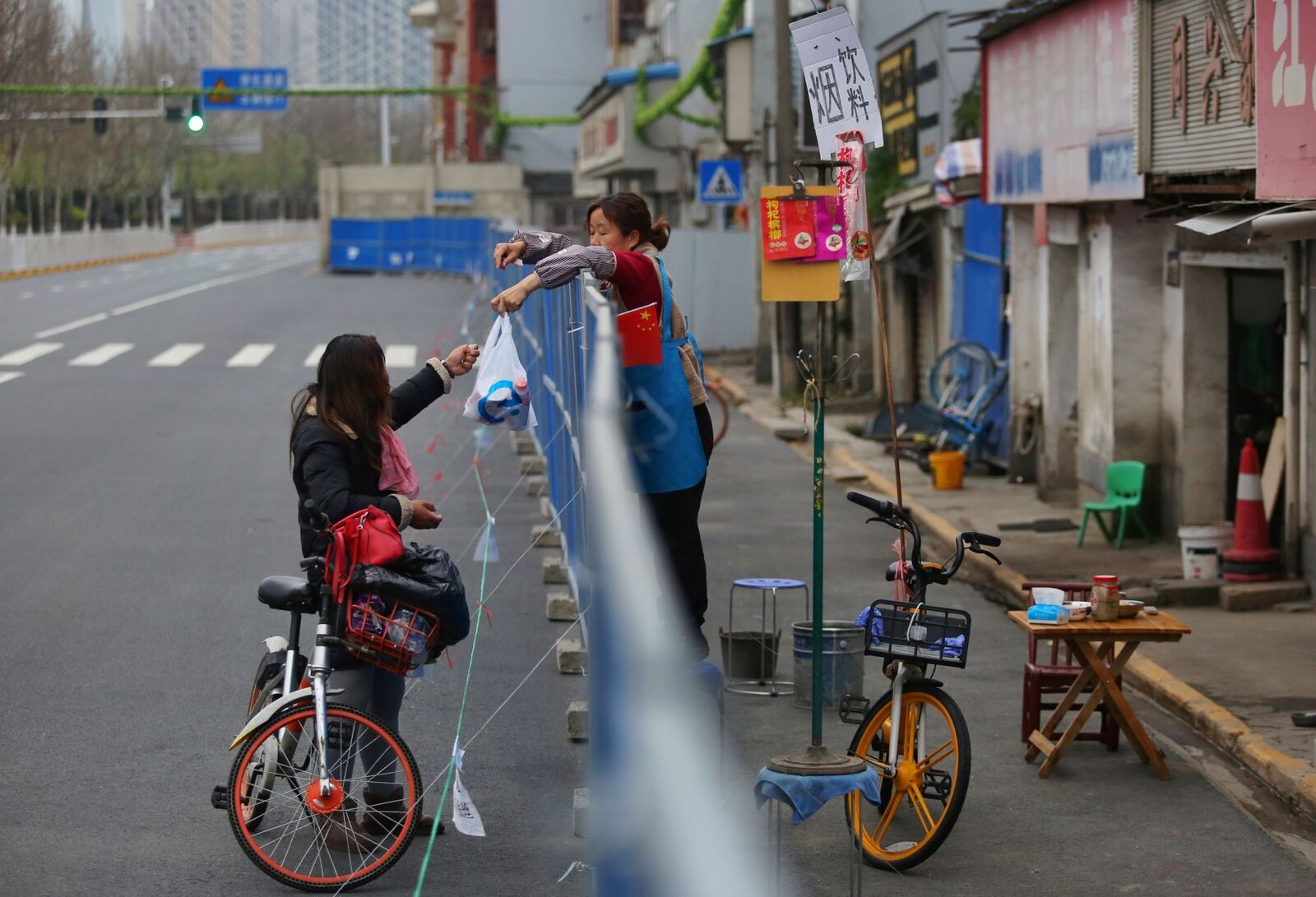China’s lockdown may have reduced air pollution as factories and power plants halted, but the pandemic has had the opposite effect on the nation’s nascent recycling effort. Millions of people in Chinese cities have been stuck at home for weeks, relying on food deliveries and online shopping, resulting in a surge in demand for single-use plastic containers and packaging. Unlike the drop in emissions, which is proving temporary as factories restart, the rise in food deliveries may be more long-lived because people get used to the convenience, said Professor Huang Qunxing, who studies solid waste disposal and clean energy at Zhejiang University.

A woman delivers food to a resident over a barrier set up to prevent access to a residential community in Wuhan, on March 16.
“The epidemic could encourage more people to become dependent on the online meal booking platforms,” Huang said. “It could also push more restaurants to expand their online business to resist similar risks in future, which would mean more disposable plastic containers that are hard to recycle.” The reversal may be a harbinger for the rest of the world as more countries encourage people to stay at home. Cities from Moscow to Buenos Aires have been locked down as the number of global deaths from Covid-19 surpassed 34,000.
